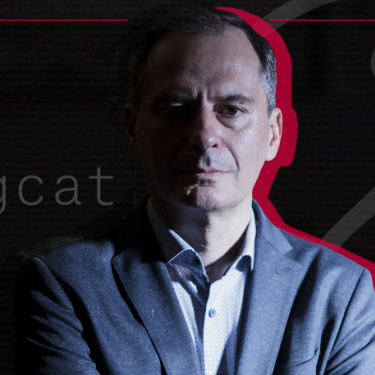“Russia is trying to intimidate me”, Bellingcat reporter on wanted list tells RSF

By placing Bulgarian investigative reporter Christo Grozev on a list of persons wanted by its interior ministry, Russia is trying to scare him and limit his ability to keep working, Grozev has told Reporters Without Borders (RSF), which has assured him of its full support and calls on Russia to end such “disgraceful intimidation”.
Read in Russian/Читать на русском
The lead Russia specialist at the investigative news website Bellingcat, Christo Grozev, has been on a list of persons wanted by Russia since the day after Christmas. According to information posted on the Russian interior ministry website on 26 December, he is wanted for an unspecified “violation of an article in the Russian criminal code.”
The adoption of this measure against a Bulgarian journalist who does not reside in Russia can only be seen as a warning.
When contacted by RSF, Grozev reaffirmed his determination to continue his investigative reporting on Russia.
“Being placed on a ‘wanted’ list without any indication of the crime I'm being accused of is a tactic that aims to intimidate me. Not being able to defend myself against anonymous crimes effectively makes me - or any journalist in my position - a legitimate target for physical harm by Russian security services and mercenaries. I'm certain that the goal is to restrict my ability to do further investigations. But in reality, this unlawful attack actually demonstrates the effectiveness of our journalistic work, and gives me and my team even more motivation to pursue more investigations.
Grozev is well known and respected for the quality of his investigative reporting on such sensitive subjects as the poisoning of Alexei Navalny, the Malaysian Airlines crash in eastern Ukraine in 2014, and the identity of the suspects in the Novichok poisoning cases in the United Kingdom in 2018, for which he received the European Press Prize for Investigative Journalism.
“The Kremlin's intimidation of the few journalists who still manage to investigate the alarming reality of Russian power must stop at once. These indiscriminate accusations on bogus and unspecified legal bases are grotesque. They have now culminated in this sad piece of Russian political theatre. These bad western-style wanted notices serve as calls for actual manhunts. It is disgraceful.
Moscow’s “worst nightmare”
After being summoned on 29 December to the Bulgarian foreign ministry to explain why a Bulgarian citizen had been placed on a Russian wanted list, Russia’s ambassador to Sofia, Eleonora Mitrofanova commented ironically that it was just “a way to tell him he is no longer welcome in Russia” and that “nothing threatens him where he lives,” AFP reported.
As he later confirmed to RSF, Grozev nonetheless insists that he regards the measure as a threat to his safety.
Launched in 2014, Bellingcat is an independent collective of researchers, investigators and journalists who have done investigative reporting on a wide range of subjects including the war in Syria and violence against reporters during the protests following George Floyd’s death in the United States. Targeted by the Russian authorities for years, Bellingcat has called Moscow’s “worst nightmare.”
